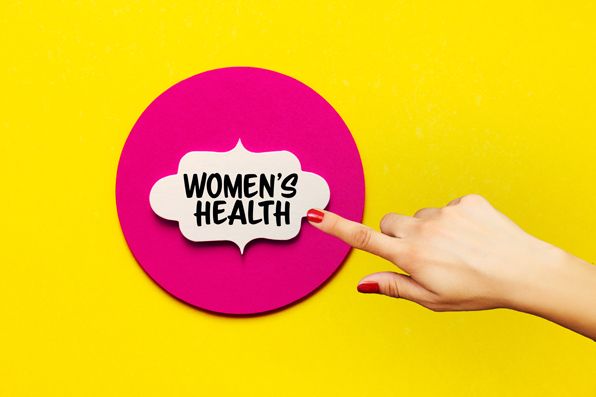Your vagina is home to millions of bacteria. This is collectively called a ‘vaginal microbiome’, and it can tell you a lot about your feminine health. The vaginal microbiome is very dynamic, with changes in your bacterial balance occuring due to menstruation, menopause, sex and more. However, too much change in the microbiome can cause conditions such as bacterial vaginosis (BV), can increase the risk of contracting sexually transmitted infections (STIs) and other feminine health issues.
What Is A Vaginal Microbiome?
The vaginal microbiome is a collective term for the microbes found in the vagina. These bacteria protect you and your vagina against pathogens, which could turn into diseases or infections if the bacteria were not present.
There is limited research on exactly how the vaginal microbiome affects, but we do know that an imbalance, called ‘vaginal dysbiosis’, can result in common feminine health conditions such as BV. This can cause fishy-smelling discharge which is often grey in colour; however, it has been found that 50% of women do not experience any symptoms.
What Bacteria Are Found In The Vagina?
Unlike the gut microbiome, which harbours lots of different types of bacteria that have different functions, the vaginal microbiome is dominated by a type of bacteria called Lactobacillus.
Lactobacilli produce lactic acid, which is what protects the vagina against pathogens. When pathogens or anaerobic bacteria enter the vagina, the lactic acid stops them from growing and prevents them from causing an infection. These pathogens and bacteria include: Candida (a genus of yeasts, the most common of which is Candida albicans, which can cause thrush); Escherichia coli (also known as E. coli); Gardnerella vaginalis; and Atopobium Vaginae.
The lactic acid maintains a low pH within the vagina, which is a good thing. The pH of a healthy vagina is usually around 4.5. By contrast, your stomach acid sits at around 2 on the pH scale.
Causes Of An Unbalanced Vaginal Microbiome
The balance of bacteria within the vaginal microbiome is very delicate and can be easily disrupted. Causes include:
- Antibiotics – While antibiotics kill bad bacteria within the body, it can also destroy good bacteria, such as lactobacilli. This lowers your protection against infection. Unfortunately, it is possible to get a yeast infection as a result of BV treatment, as the treatment will include antibiotics.
- Penetrative or oral sex – Not only can your partner can pass on a number of pathogens to your vagina through sexual contact or intercourse, the presence of semen in the vagina can be enough to cause an imbalance. Semen is naturally alkaline, which protects the sperm from the acidity of the vaginal environment. In some cases, this can cause a pH imbalance.
- Sex toys – Sex toys that have not been properly cleaned, have been cleaned using fragranced detergents, or have been used by someone else, can cause a disruption to your vaginal microbiome.
- Hormones – Oestrogen helps to maintain a good amount of lactobacilli within the vagina. Women undergoing puberty, or who are pregnant, have high amounts of oestrogen in their bodies, which means that they are less likely to experience vaginal dysbiosis. Conversely, women going through menopause will see their oestrogen levels drop; therefore dysbiosis is more likely. Oestrogen levels can also drop after ovulation during the menstrual cycle, causing some women to experience yeast infections more regularly.
- Douching – Using a douche, especially one which contains an antiseptic or fragrance, can upset the pH balance of the vagina.
How To Maintain A Balanced Vaginal Microbiome
Dr Albert Aka, Consultant Gynaecologist at The Gynae Centre explains: “Although causes of vaginal dysbiosis such as hormone fluctuations are difficult to control, there are steps you can take to help maintain a balanced microbiome, especially if you suffer regularly with conditions like BV. For example, using a condom during penetrative sex will prevent your vagina from coming into contact with pH-disrupting bacteria or semen from your partner, while avoiding douching or the use of scented lubricants will help to maintain and protect the lactobacilli already present.”
Keeping Your Vagina Happy While Using Sex Toys
Sex toys can harbour bacteria that can disturb the delicate vaginal microbiome. Here are our top tips for maintaining a happy vagina:
- Avoid sex toys made from porous materials (leather, hard plastic, rubber), as these contain tiny holes which can harbour bacteria. Silicone and metal are generally non-porous.
- Clean your toys well after each use, using a fragrance-free detergent. If you are particularly susceptible to vaginal dysbiosis, you may also want to clean them before each use.
- Store your sex toys in a dedicated container where they won’t come into contact with other people or objects which can transfer bacteria onto them.
If you are concerned about vaginal dysbiosis, call The Gynae Centre today for specialist advice from our experienced gynaecologists on 020 7580 8090. Alternatively, you can book a consultation online.






